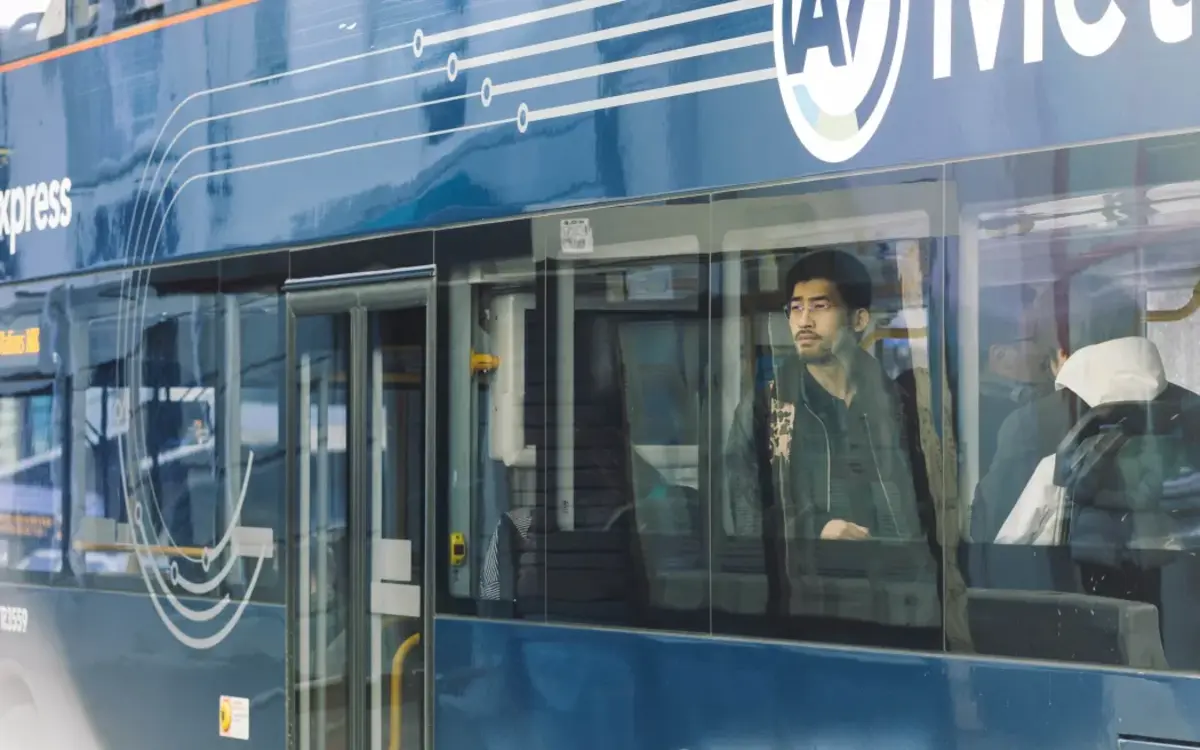Auckland Transport officers need to be deployed outside of the central city - driver
RNZ
22 September 2024, 7:14 PM
 Photo: RNZ / Yiting Lin
Photo: RNZ / Yiting LinNew transport officers are not deployed where they need to be to prevent attacks, an Auckland bus driver says.
Violence and aggression on public transport, and against operators, have been on the rise in Auckland.
The latest numbers of risk events reported by Auckland Transport operators from July showed a 35 percent increase on the previous month, with 27 cases reported across the month.
The majority of those, over 80 percent, were violence, threats or aggression.
The bus driver, who did not want to be named, said drivers were powerless to stop disorderly passengers from getting onboard when they did not pay a fare.
He said drivers were being put in dangerous situations with aggressive passengers "once a week".
"We are not allowed to refuse to [take] a ride," he said. "Auckland Transport ask us to just record that on the console. Because there are no checks on these people, these people come back [and] create problems."
He said if a driver was to refuse, they put themselves at risk of getting beaten up.
Auckland Transport recently debuted newly trained transport officers, bringing the workforce up to about 60.
But the bus driver told RNZ he had not seen a transport officer on any of the routes outside of central Auckland.
"[Transport officers] have the authority to take them off the bus, give them fines for evading fares. So when these fare evaders see them regularly, they won't coming on the back on the bus, or they will be willing to pay."
He said without a visible officer presence, passengers were encouraged to not pay and have unruly behaviour.
Auckland Transport public transport services operations manager Duncan McGrory said transport officers were deployed across buses, trains and ferries, and worked between stations, seven days a week.
He said there were between 19 and 22 officers on the network at any given time - but with 1.6 million public transport trips a week in the city, it was impossible to cover the entire network.
"You could argue that there's not enough, but I don't think we could ever find enough transport officers to cover every single trip on bus, ferry and train that we do."
McGrory said fare evasions had increased since the Covid-19 pandemic - likely due to the removal of cash fares to minimise contact, which was causing risks for drivers from thefts.
"We would prefer that everybody pay a fare - but at the same time, if questioning someone about paying a fare is going to cause an issue, then we tell the operators 'just let them ride for free'."
"There's lots of arguments about 'everybody needs to pay' and we understand that and agree with that, but at the end of the day, drivers' safety is our priority."
Protective screens for bus drivers were fitted to all new buses, but 80 percent of the fleet needed screens retrofitted, which McGrory said was a longer process.
Sixty screens would be installed over the next two to three months, and 300 over the first half of 2025.
"It's a society-based issue, it's nothing that were doing or that anyone's doing in particular. There just seems to be a feeling at the moment from a small demographic of our society that they should be able to ride public transport for free."

NEWS
WHAT'S ON
TRADES & PROFESSIONAL SERVICES

